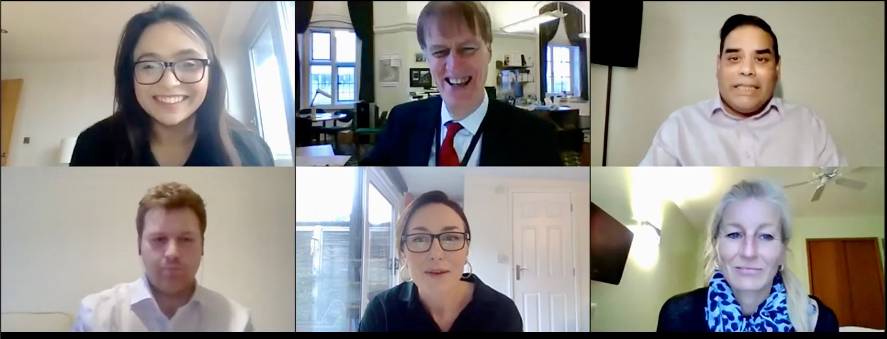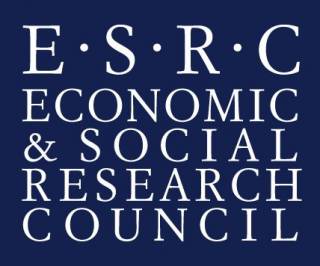A research project investigating the relationship between the local and transnational citizenship experiences of Bangladesh-origin Muslims in London and Birmingham.
This project examines how local political identities influence processes of transnational engagement. It also considers how transnational identities and relationships inform local political subjectivity.
The project is funded by the ESRC as part of an ESRC Future Research Leaders Grant (ES/N000986/2).
The project began in July 2016 and ended on the 31 December 2020.
- Background
Local experiences of citizenship
The project investigates local experiences of citizenship in relation to:
- different histories of settlement
- different population profiles in terms of ethnic concentration
- age
- gender
- socio-economic background
- length of residence and naturalization status
- different social and political environments of the two cities.
It then considers how these local experiences of citizenship influence transnational relations, and vice versa.
Transnational relations
The project deviates from the majority of the literature on Muslim transnational relations in which the focus is very often on the characteristics of the population, or the characteristics of Islamic culture, in a way that ignores 'the role of social and political circumstances in shaping how people make sense of the world and then act upon it' (Kundnani, 2014).
In the context of the ongoing ‘War on Terror’, and an increasing political and media focus on a security threat that is ‘home grown’, the transnational practices of British Muslims have generated particular concern.
This has fed into a range of recent policy proposals with respect to the treatment of British subjects who engage in transnational activities the government does not support, and brings the constitutionally protected activities of a large number of people under increasing surveillance (Kundnani, 2014).
In popular debate and the practice of public policy, therefore, transnational ties may affect local experiences of citizenship but more research is needed to understand how transnational activity is situated in social, cultural and political milieu.
- Research questions
This project aimed to answer the following research questions:
- How do the different histories of Bangladeshi Muslim settlement in London and Birmingham, as well as their different population profiles and the different socio-political environments of these cities, influence experiences of citizenship?
- How do local political identities in these cities inform processes of transnational political and religious engagement?
- Does transnational engagement influence the creation of local political space?
- What can this tell us about the relationship between transnational activity and local belonging?
- How can comparing experience across different urban centres feed into the activity of Government agencies, and connect to gaps in civil society service provision, in order to strengthen citizenship experiences among the Bangladeshi population in these field sites?
- Methodology
In each location, in-depth semi-structured interviews were conducted with Bengali individuals in the form of same-sex parent/child dyads. The use of same-sex parent-child dyads helps to draw out generational dimensions and to focus the issues of continuity and change over time.
In addition, oral history interviews and civil society interviews were conducted in each location, producing a total of approximately 75 interviews (with approximately 120 people), complemented by ethnographic observation with the Bangladeshi community in all the field sites.
Field Sites
Tower Hamlets (Inner London)
Dyad interviews with parents and children - 15
Oral history interviews - 5
Civil society interviews - 5
Total interviews - 25Luton (Outer London)
Dyad interviews with parents and children - 10
Oral history interviews - 3
Civil society interviews - 3
Total interviews - 16Smethwick (Birmingham)
Dyad interviews with parents and children - 20
Oral history interviews - 6
Civil society interviews - 8
Total interviews - 34Total by interview type
Dyad interviews with parents and children - 45
Oral history interviews - 14
Civil society interviews - 16
Total interviews - 75- Outputs
Publications
- Redclift, V., and Rajina, F (2021) ‘The hostile environment, Brexit and ‘reactive’ or ‘protective’ transnationalism’, Global Networks, 21 (1): 196-214
- Redclift, V., (2021) ‘Displacement, integration and identity in the postcolonial world’ in The 1947 Partition in the East: Trends and Trajectories. London: Routledge
- Anand, K and Redclift, V (2022) Experiences of British Bangladeshi Muslims in Higher Education Institutions in the United Kingdom. RSSSR 32, Special Section on Religion in Higher Education.
- Redclift, V., Rajina, F and Rashid, N. (2022) ‘The Burden of Conviviality: British Bangladeshi Muslims navigating diversity in London, Luton and Birmingham’. Sociology, 56 (6): 1159-1175
- *Shortlisted for the Sage Prize for Innovation/Excellence.
- Dickson, E and Redclift V (2024) ‘An attack on transnationalism and citizenship: British Bangladeshis, family migration, and the postcolonial state’. Critical Social Policy, 44 (1): 45-66
- Redclift, V; (2020). Transnational practices in local settings: experiences of citizenship among Bangladesh-origin Muslims in Luton. UCL Institute of Education: London, UK.
- Redclift, V and Rajina, F. (2020). Transnational practices in local settings: experiences of citizenship among Bangladesh-origin Muslims in Tower Hamlets. UCL Institute of Education, London, UK
- Redclift, V and Rajina, F. (2020). Transnational practices in local settings: experiences of citizenship among Bangladesh-origin Muslims in Birmingham. UCL Institute of Education: London, UK.
- Redclift, V and Rajina, F. (2019). The hostile environment, Brexit and reactive or protective transnationalism. Global Networks
- Redclift, V. (2017). Re-bordering Camp and City: ‘Race', Space and Citizenship in Dhaka. In: Hall, S and Burdett, R, (eds.) The SAGE Handbook of the 21st Century City
- Redclift, V. and Rajina, F. (2017). Rethinking Muslim migration: frameworks, flux and fragmentation. Ethnic and Racial Studies
- Redclift, V. (2016). The demobilization of diaspora: history, memory and ‘latent identity’. Global Networks
Blogs
- Why do British Bangladeshis have some of the worst Covid outcomes in the UK? - Victoria Redclift
- The pandemic’s impact on ‘undocumented migrants’ in the UK: anatomy of the ‘hostile environment’ - Kusha Anand
- Home Office discretion, ‘culture of cruelty’ and the English Language Test - Kusha Anand
- When transnational means local and local means transnational: The need for sociality in anti-social times - Katarina Zajacova
- Islamophobia and Britain’s major political parties - Liam Carroll
- #1in5Muslims - Victoria Redclift
Podcasts
Events
- Anand, K.,Redclift, V. (2020). Experiences of Citizenship among Bangladesh-origin Muslims in London, Luton, and Birmingham. Online Parliamentary Roundtable Conference.
Conference speakers below. First row (from left to right): Kusha Anand, Stephen Timms MP and Khalid Mahmood MP. Second row (from left to right): Liam Caroll, Victoria Redclift and Katarina Zajacova.

- Team
Principal Investigator
Research Fellows
- Dr Kusha Anand
- Dr Katarina Zajacova
 Close
Close


